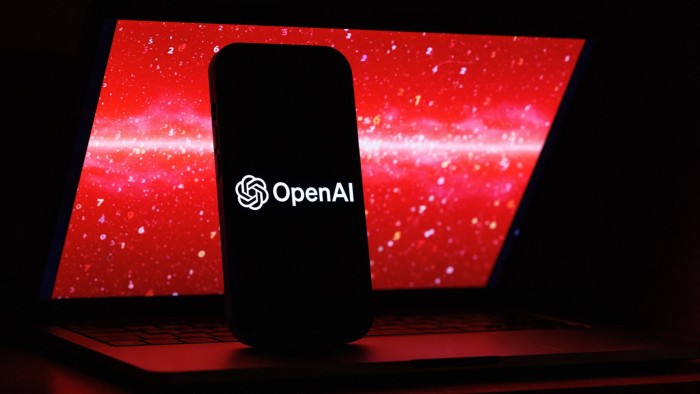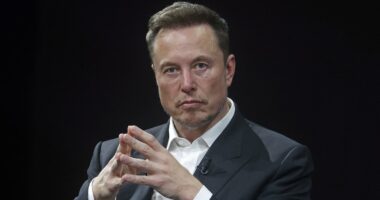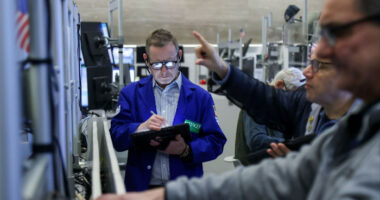Share this @internewscast.com
Gain Free Access to the Editor’s Digest
In a pivotal move, OpenAI has undergone a significant restructuring, bestowing its largest shareholder, Microsoft, with a substantial $135 billion stake. This transaction has catapulted the technology giant to a remarkable $4 trillion market valuation.
Microsoft now holds a 27 percent stake in OpenAI, the innovative company behind ChatGPT. Originally established as a non-profit, OpenAI has been pursuing avenues to attract new investment by allowing stakeholders to acquire traditional equity.
This restructuring has led to the formation of a new for-profit entity, the OpenAI Group. This strategic shift underscores the $500 billion start-up’s ambition to secure the extensive funding necessary for advancing its large language models and aiming for a future public offering.
Sam Altman, the co-founder and CEO of OpenAI, disclosed on Tuesday that while an initial public offering (IPO) seems to be the most feasible route, the organization has not yet laid out any specific plans.
Following this announcement, Microsoft’s stock experienced a more than 2 percent increase, elevating its market valuation beyond the $4 trillion mark—a milestone previously reached by tech giants Nvidia and Apple.
While the deal awards Microsoft the largest single stake in the OpenAI Group, the AI pioneer’s non-profit arm intends to retain control through its exclusive rights to hire and fire board members.
“This unblocks any lingering questions about whether we can raise money, and confirms we can partner with whoever we want on the cloud side,” a person close to OpenAI said of the restructuring.
OpenAI was founded in 2015 with the mission to ensure that artificial general intelligence [AGI] — which would surpass human intelligence — benefits humanity when it is achieved. Microsoft had been the most significant barrier to its efforts to convert to a more conventional for-profit structure.
As part of the deal, OpenAI has agreed to allow Microsoft access to its AI technology until 2032 and promised to spend $250bn with the technology giant’s cloud arm over time.
Microsoft’s 27 per cent stake will be worth about $135bn, almost 10 times greater than the $13.75bn the technology giant has invested in OpenAI since 2019.
The deal means backers including Masayoshi Son’s SoftBank and venture capital firms Thrive Capital, Andreessen Horowitz and Sequoia Capital can also hold equity in OpenAI’s business. Previously they were entitled only to a share of profits.
Altman would not take equity as part of the restructuring and had no plans to do so, according to the person close to OpenAI.
The group said on Tuesday that the non-profit, rebranded as the OpenAI Foundation, will hold 26 per cent of the equity in the new business, currently valued at about $130bn.
Employees and other investors will have the remaining 47 per cent.
The non-profit’s board will have sole responsibility of holding the for-profit responsible for its “mission” to ensure AGI benefits all of humanity. Its main form of exercising this control will be by hiring and firing board directors. Altman remains on both boards.
OpenAI said the foundation would initially focus on funding research on healthcare and curing diseases, and technical solutions for “AI resilience” to make AI models more robust.
The arrangement had been signed off by the attorneys-general of Delaware, where OpenAI is incorporated, and California, where it is headquartered.
The issue of control had been one of the main focuses of the negotiations between OpenAI, which was advised by Goldman Sachs and Michael Klein, and Microsoft, which worked with Morgan Stanley.
Microsoft’s previous investments gave chief executive Satya Nadella access to OpenAI’s technology, which his company built into its enterprise software and consumer products, as well as exclusive rights as the AI group’s cloud computing provider.
But the relationship between the two groups frayed over time as OpenAI’s ambitions grew, with executives clashing over the amount of computing power allocated to the start-up as it raced to build increasingly powerful models to compete with rivals such as Google and Anthropic.
As part of Tuesday’s deal, Microsoft gave up its exclusive rights on cloud provision.
It has also given up its rights to block acquisitions and the issuance of securities, according to a person with knowledge of the arrangement. Those rights “became unwieldy” as OpenAI increased in size and have been scrapped as part of the restructuring, they added.
But Microsoft will retain access to OpenAI models until 2032. This previously had been due to be rescinded once OpenAI’s board determined that AGI had been reached, which became a major bone of contention in the talks.
“We have negotiated a great deal for our shareholders, with massive value created on our investment and key assurances about the partnership into the future,” said a person familiar with Microsoft’s position.
It will now be also be up to an independent panel to verify whether AGI has been achieved — although the person familiar with the matter said its size and composition had yet to be decided, as had the exact definition of AGI.
Microsoft will separately retain access to research, such as the methods and techniques used to develop OpenAI’s models, until 2030 or until the expert panel verifies AGI, whichever comes first.
Additional reporting by Oliver Barnes in New York










